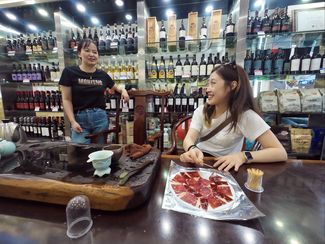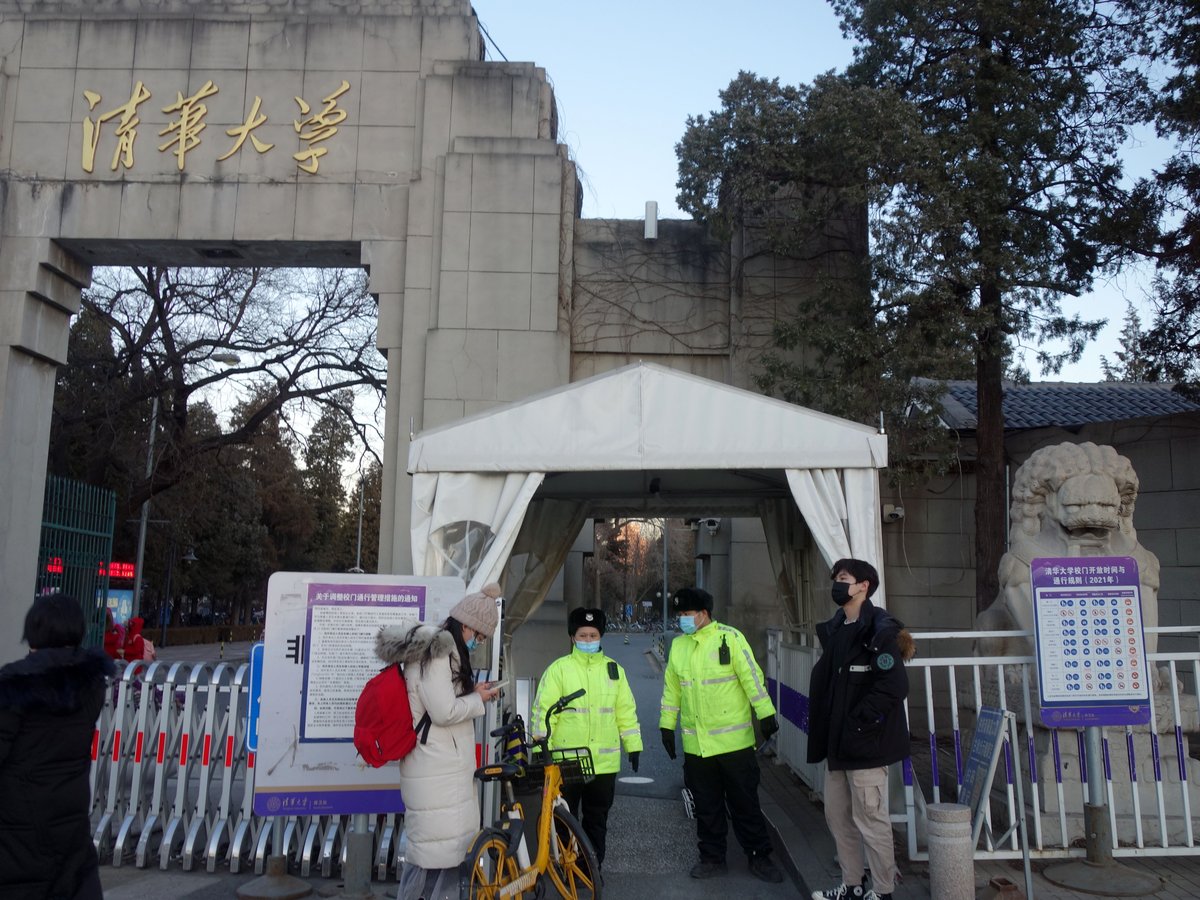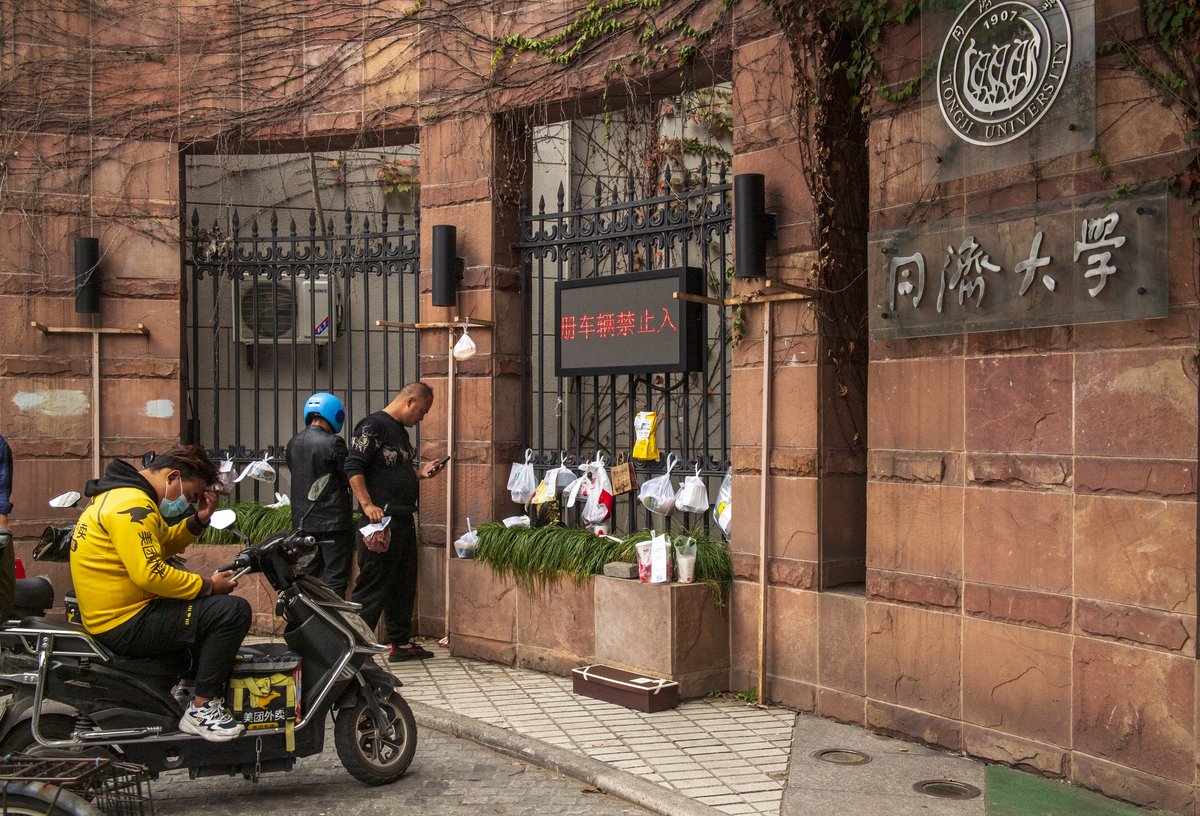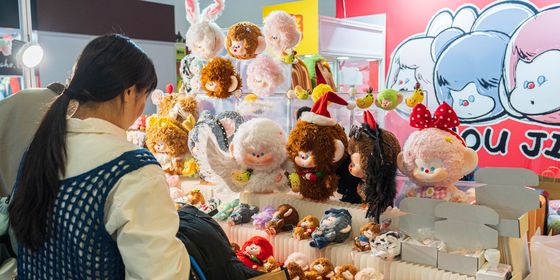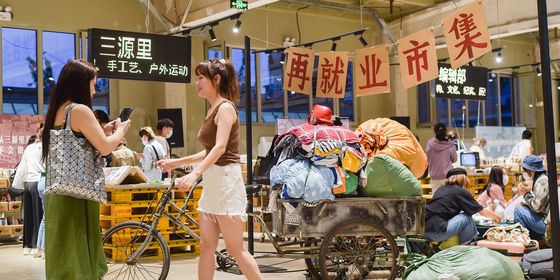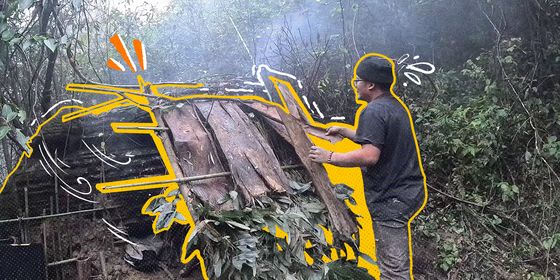Months after “zero-Covid” policies disappeared around China, many colleges and universities still have yet to lift campus entry restrictions
Months after China lifted its “zero-Covid” policies in December 2022, marking a sudden end to three years of mandatory testing to enter public spaces and other strict measures, one space has yet to return to normal—university campuses.
To keep their campuses virus-free, colleges and universities across the country set up restrictions on who can enter or leave the school gates early in the pandemic. Barricades, checkpoints, and security guards were placed at campus perimeters to enforce these policies, and many still remain today.
Zhang Mingli, a middle-aged manager of a grocery store he doesn’t want to name in Beijing, found this out the hard way. When he relocated to the capital two years ago, he tried to realize a long-cherished dream of visiting the campus of Tsinghua, one of China’s top universities. “Tsinghua University has a special place in many Chinese citizens’ hearts, including mine,” Zhang tells TWOC. But after scrolling over two years’ worth of outdated policies on the search engine Baidu, short-video platform Douyin, and even the university’s official website, he was still unable to find out how to apply for a visitor permit to get on campus.
Visitor restrictions at university campuses are not a new development out of the pandemic. Previously, the public could freely roam around Sun Yat-sen University in Guangzhou, but from 2017 the university began requiring students, faculty, alumni, and the public to show valid ID cards upon entering and exiting campus. Similar policies had existed for years (though were not always strictly enforced) on other campuses, such as Peking University in Beijing.
But restrictions ramped up during the pandemic, where even students (though not faculty) were stopped from leaving or reentering campus, often during periods when the surrounding city had no outbreaks. Classes moved online, students were required to do routine Covid tests, and although dorms weren’t in constant lockdown, students were advised to stay inside. Shen Maohua, a seasoned columnist who often writes about China’s public spaces under the pen name Weizhou, wrote in an article in Sanlian Lifeweek magazine in May that students’ “social life and communication skills have suffered” during the pandemic, affecting the entire social ecosystem in university campuses.
One such change is the disappearance of tuanjian, or team-building activities within classes or student clubs. Wang Tiantian, a current senior at Tsinghua University in the School of Life Sciences, had no idea that his first university orchestra summer camp, an annual tradition for the student orchestra, would also be his last. After he entered college during the fall of 2019, one semester before the pandemic, “We used to go to KTV and bars after the annual summer training camp, but during pandemic restrictions that all disappeared,” Wang tells TWOC. He felt that the loss of these activities greatly affected the development of relationships and interactions between orchestra members three years later.
Getting food delivery was tough too. Delivery drivers often had issues getting into Wang’s campus, with many not in the habit of carrying their government-issued ID card to swipe at the gates. They would call him and ask to meet at the gates, far from his dorm. “I’d come back to the dorm drenched in sweat after biking to meet them,” says Wang.
Online, several university students questioned whether the hard lockdowns placed on them were truly for their own safety. In the comments for one video published on video-streaming platform Bilibili titled “My Two Cents Regarding University Lockdown-Style Policies,” one netizen wrote: “If faculty and staff are also subjected to the same lockdown policies, I’ll believe these regulations are ‘in the interest of our safety.’”
Other commenters complained about price inflation: “Campus grocery store prices are so inflated [that] for some students’ economic status back home, paying such prices is unrealistic,” wrote one viewer, hinting that grocery store owners were colluding with campus administrators to bilk the students.
Shen feels that universities are focused on restricting access mainly because of how educational and scholarly pursuits are seen in Chinese society. “Our society has a strong belief of what’s appropriate within educational institutions, believing these to be places where students should be focused on their studies in a “pure land” that isn’t interrupted by the commotion of the outside world…more so than in other publicly managed spaces such as neighborhoods,” he tells TWOC.
Shen also mentions the ideal of wuxianzeren, or “unlimited responsibility,” on teachers and staff that exists in Chinese society. He says, “No matter what happens on campus, the blame is always pinned on the teacher [or school official].” This puts pressure on university officials, motivating them to put extra strict policies in place to ensure nothing can go wrong for the students.
“You’ll notice that educational institutions are often among the first groups to implement new regulations, but also among the last groups to remove regulations,” says Shen. The extra strict entry policies, despite their negative effects in various ways, help maintain safety, order, and peace on campus. “University officials, therefore, have very little incentive to get rid of pandemic policies quickly.”
He does believe, however, that schools will meet the rest of society’s post-pandemic policies, where life has gone completely back to normal, just not now. “By my observations, universities’ return to normal seems to lag behind society’s return to normal by about six months,” Shen describes. While trying to enter campus for a guest lecture he was giving in early May, a university staff member had to apply for an entrance permit on Shen’s behalf using his own national ID card, but Shen heard that by late May, this policy had loosened up.
Despite his struggles to retrieve his take-out or socialize with his classmates, Wang isn’t a proponent of a completely open campus policy like before the pandemic. Seeing campus serve as a tourist attraction negatively affected his university experience, as the road to Erxiaomen, a picturesque gate with Tsinghua University, was often so crammed with visitors that he had a hard time getting to class. He once had a near-crash with a tourist biking around campus, and describes how visitors would stumble into the canteen and ask to borrow student ID cards to pay for the inexpensive, tasty food—he’s heard of many friends who never got paid back.
Wang describes his ideal school entrance policy to be a slight modification of his university’s current rules. “It would be ideal to restrict access towards tourists for libraries, lecture halls, department buildings where labs are housed, and dormitories,” he says. Currently, only individuals affiliated with the university, such as students, faculty, and staff, can submit campus visitor applications, but he wants to increase the quota of daily and monthly applications, which are currently capped at five and fifteen visitors, respectively.
Shen also feels many administrators and students might be in favor of campus restrictions. A few years ago, when he expressed nostalgia to a former classmate about how Xiamen University, his alma mater, had an open campus policy when he attended, they complained that the university had become a tourist attraction, which disrupted classroom teaching.
However, he is still in favor of opening up China’s campuses. He believes that students’ education is becoming increasingly disconnected and irrelevant to the skills necessary to contribute to society. “I had a teacher tell me that…students nowadays are very strange, they have no issues showing up to class, but regarding internships, public life…even dating, they have very little interest,” Shen says.
The pandemic seemed to have accelerated this trend. Even before, there was a divide between the classroom setting and the public environment. In May, Shen wrote on his public WeChat account that not only are teaching materials not usually updated to the most cutting-edge knowledge, but teachers stay in their “ivory towers” and students are unwilling to make contact with the outside world. “Fewer people want to take on an internship, and more are willing to [continue studying and] take the postgraduate entrance examination, even if graduation is approaching,” Shen writes.
For outsiders who have no connections to university students or employees, setting foot inside college campuses remains an impossible task. But Zhang Mingli recently got a lucky break: as he sat on a high-speed train back to Beijing from a business trip, he chatted enthusiastically with the young woman in the next seat for four hours before discovering that she was a current student at Tsinghua. Days later, his family members showed up at the campus entrance, confidently showed their ID cards to the security guards, flashed their visitor application from a stranger on the train, and passed through the gates.

